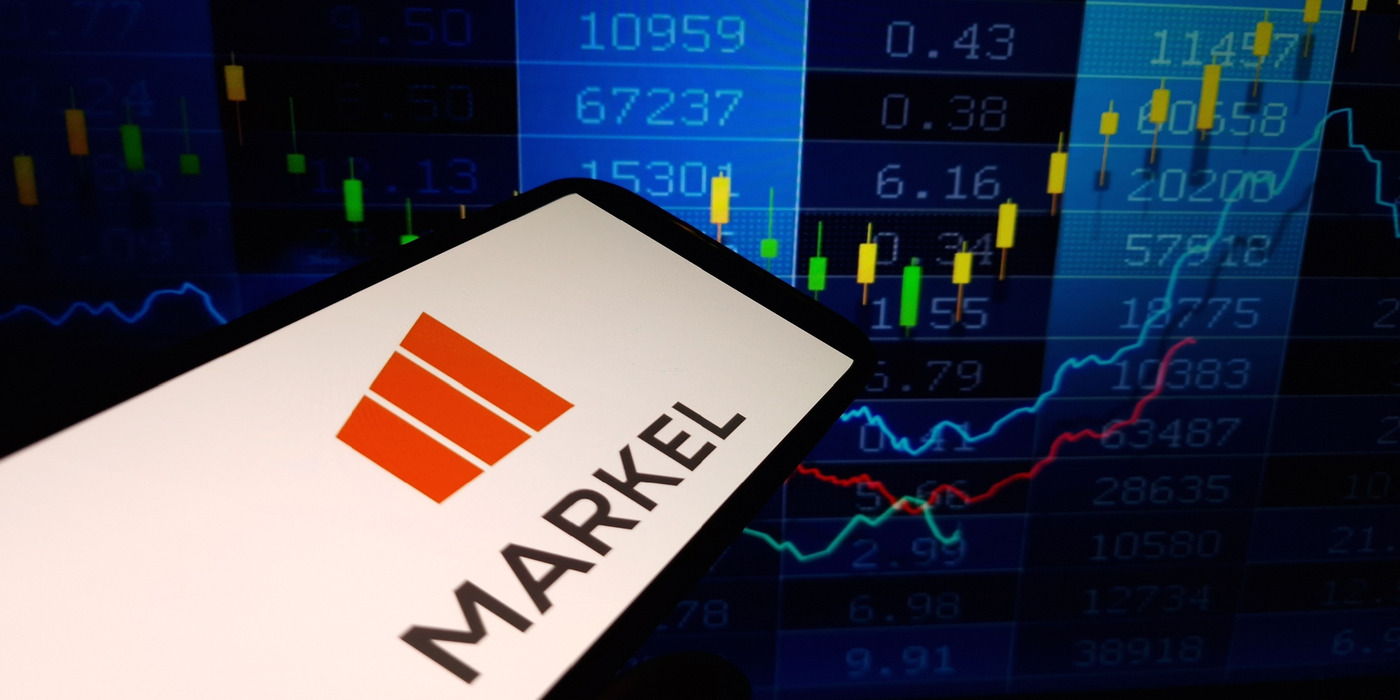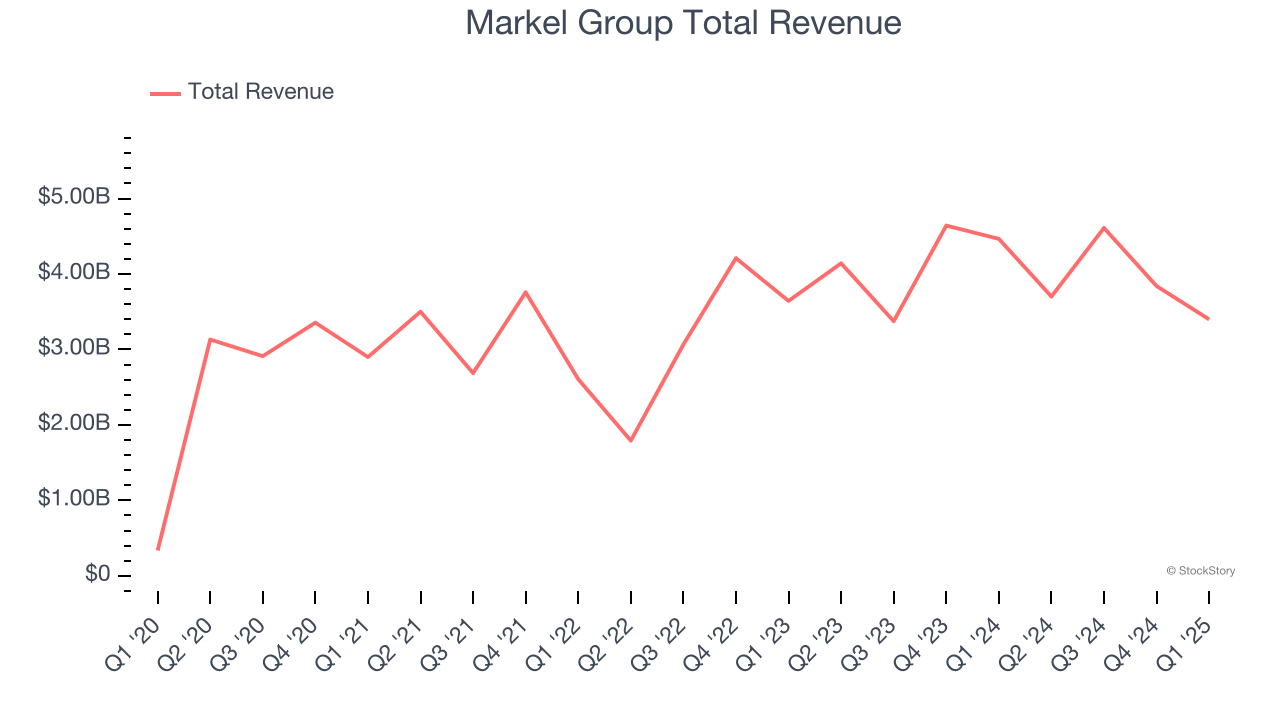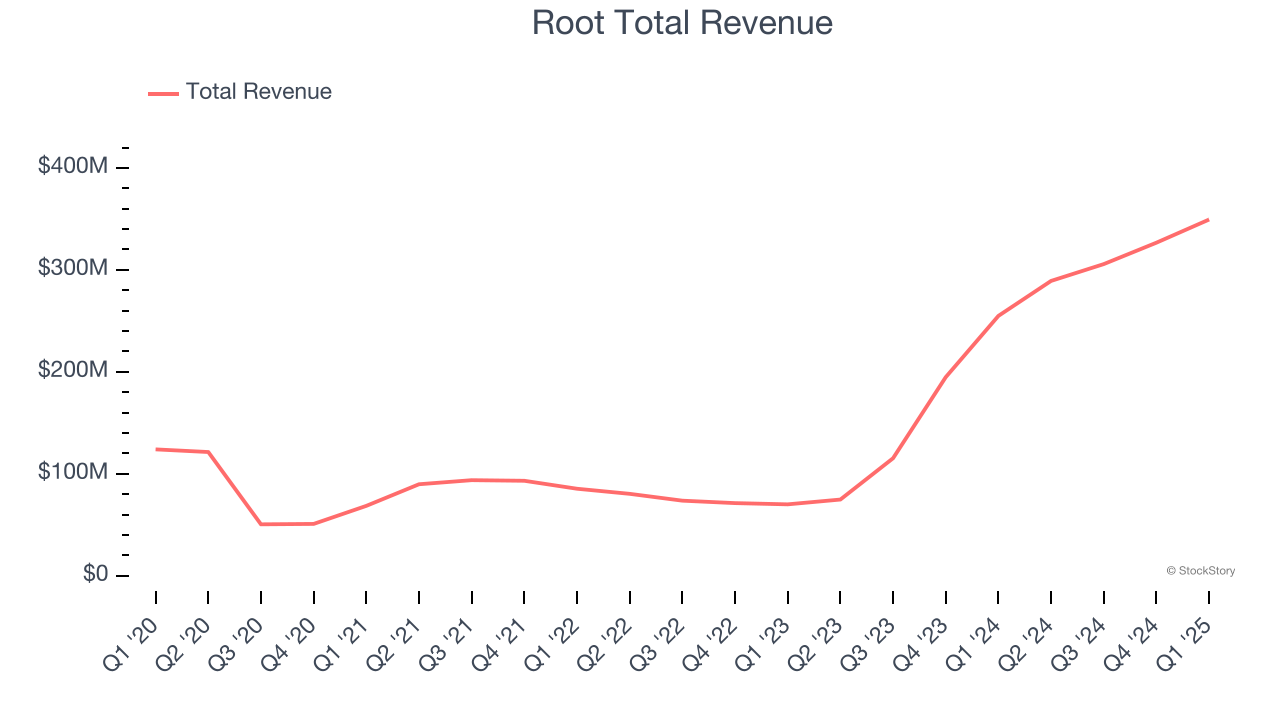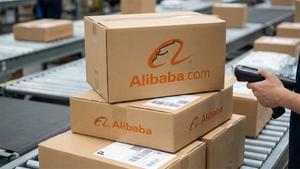
The end of an earnings season can be a great time to discover new stocks and assess how companies are handling the current business environment. Let’s take a look at how Markel Group (NYSE: MKL) and the rest of the property & casualty insurance stocks fared in Q1.
Property & Casualty (P&C) insurers protect individuals and businesses against financial loss from damage to property or from legal liability. This is a cyclical industry, and the sector benefits when there is 'hard market', characterized by strong premium rate increases that outpace loss and cost inflation, resulting in robust underwriting margins. The opposite is true in a 'soft market'. Interest rates also matter, as they determine the yields earned on fixed-income portfolios. On the other hand, P&C insurers face a major secular headwind from the increasing frequency and severity of catastrophe losses due to climate change. Furthermore, the liability side of the business is pressured by 'social inflation'—the trend of rising litigation costs and larger jury awards.
The 33 property & casualty insurance stocks we track reported a mixed Q1. As a group, revenues beat analysts’ consensus estimates by 2.4%.
In light of this news, share prices of the companies have held steady as they are up 1.8% on average since the latest earnings results.
Markel Group (NYSE: MKL)
Often referred to as a "mini Berkshire Hathaway" for its three-engine business model of insurance, investments, and wholly-owned businesses, Markel Group (NYSE: MKL) is a specialty insurance company that underwrites complex risks, manages investment portfolios, and owns a diverse collection of operating businesses.
Markel Group reported revenues of $3.40 billion, down 23.9% year on year. This print fell short of analysts’ expectations by 6.1%. Overall, it was a mixed quarter for the company with a solid beat of analysts’ EPS estimates but a miss of analysts’ book value per share estimates.
"The first quarter was a productive one at Markel Group. Our cornerstone insurance business moved along its path to better. We experienced a lower than initially anticipated impact from the California wildfires. Excluding that impact, our combined ratio returned to the low nineties. We also elevated Simon Wilson as the new leader of our Markel Insurance business. Simon is a proven leader and winner – and he has a clear vision for how to profitably grow that business. Finally, while the strong tailwinds of the past few years have eased, results within our Ventures businesses continued to hold up well," said Tom Gayner, Chief Executive Officer of Markel Group.

Markel Group delivered the slowest revenue growth of the whole group. Interestingly, the stock is up 10.1% since reporting and currently trades at $2,002.
Is now the time to buy Markel Group? Access our full analysis of the earnings results here, it’s free.
Best Q1: Root (NASDAQ: ROOT)
Pioneering a data-driven approach that rewards good driving habits, Root (NASDAQ: ROOT) is a technology-driven auto insurance company that uses mobile apps to acquire customers and data science to price policies based on individual driving behavior.
Root reported revenues of $349.4 million, up 37.1% year on year, outperforming analysts’ expectations by 9.1%. The business had an incredible quarter with an impressive beat of analysts’ EPS and net premiums earned estimates.

Although it had a fine quarter compared its peers, the market seems unhappy with the results as the stock is down 11.1% since reporting. It currently trades at $124.69.
Is now the time to buy Root? Access our full analysis of the earnings results here, it’s free.
Weakest Q1: Fidelity National Financial (NYSE: FNF)
Issuing more title insurance policies than any other company in the United States, Fidelity National Financial (NYSE: FNF) provides title insurance and escrow services for real estate transactions while also offering annuities and life insurance through its F&G subsidiary.
Fidelity National Financial reported revenues of $2.73 billion, down 17.3% year on year, falling short of analysts’ expectations by 17.9%. It was a disappointing quarter as it posted a significant miss of analysts’ EPS estimates.
Fidelity National Financial delivered the weakest performance against analyst estimates in the group. As expected, the stock is down 9.9% since the results and currently trades at $57.99.
Read our full analysis of Fidelity National Financial’s results here.
MGIC Investment (NYSE: MTG)
Founded in 1957 when the modern mortgage insurance industry was in its infancy, MGIC Investment (NYSE: MTG) provides private mortgage insurance that protects lenders when homebuyers default on their loans, enabling borrowers to purchase homes with smaller down payments.
MGIC Investment reported revenues of $306.2 million, up 4% year on year. This result was in line with analysts’ expectations. It was a strong quarter as it also logged a decent beat of analysts’ EPS estimates.
The stock is up 14.5% since reporting and currently trades at $28.52.
Read our full, actionable report on MGIC Investment here, it’s free.
Lemonade (NYSE: LMND)
Built on the principle of giving back unused premiums to charitable causes selected by policyholders, Lemonade (NYSE: LMND) is a technology-driven insurance company that offers homeowners, renters, pet, car, and life insurance through an AI-powered digital platform.
Lemonade reported revenues of $151.2 million, up 27% year on year. This number surpassed analysts’ expectations by 4.3%. Overall, it was a very strong quarter as it also put up an impressive beat of analysts’ net premiums earned estimates and a decent beat of analysts’ EPS estimates.
The stock is up 41.6% since reporting and currently trades at $42.48.
Read our full, actionable report on Lemonade here, it’s free.
Market Update
Thanks to the Fed’s series of rate hikes in 2022 and 2023, inflation has cooled significantly from its post-pandemic highs, drawing closer to the 2% goal. This disinflation has occurred without severely impacting economic growth, suggesting the success of a soft landing. The stock market thrived in 2024, spurred by recent rate cuts (0.5% in September and 0.25% in November), and a notable surge followed Donald Trump’s presidential election win in November, propelling indices to historic highs. Nonetheless, the outlook for 2025 remains clouded by potential trade policy changes and corporate tax discussions, which could impact business confidence and growth. The path forward holds both optimism and caution as new policies take shape.
Want to invest in winners with rock-solid fundamentals? Check out our Hidden Gem Stocks and add them to your watchlist. These companies are poised for growth regardless of the political or macroeconomic climate.




